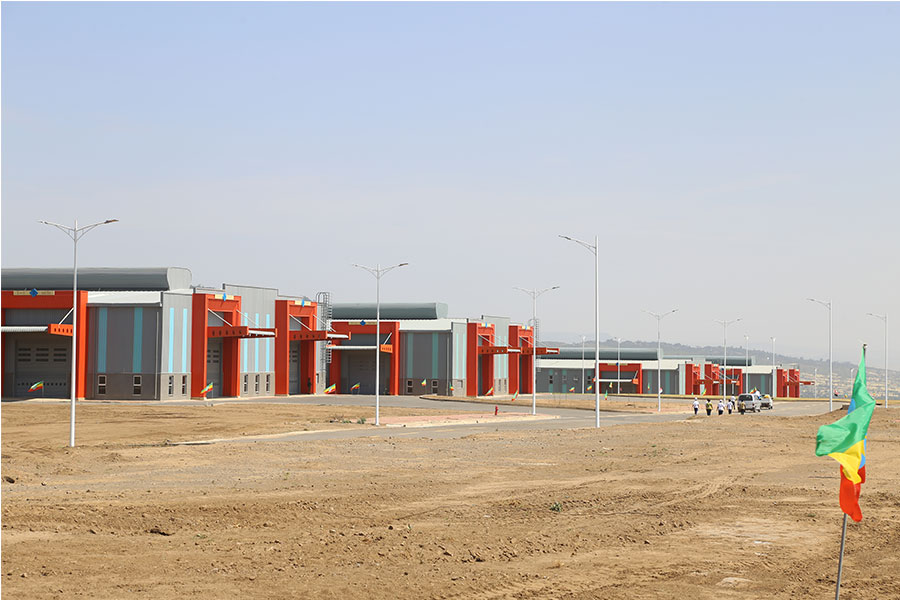
News Analysis | Sep 26,2021
Jun 19 , 2021
By Michael Harshavardhan (PhD)
Most startups are apprehensive about committing to corporate social responsibilities (CSR). They ask whether or not it is possible to turn a profit while being socially responsible at such a young age. Clarity on the concept of CSR answers this in the affirmative, writes Michael Harshavardhan (PhD) (michaelb.harshavardhan@gmail.com), assistant professor at the Department of Management, College of Business & Economics, Addis Abeba University.
The debate around corporate social responsibility (CSR) remains rife even today. But the diversity in its import across the world, and the manner in which it is treated in different continents, nations, and by businesses, needs to be revisited. This confusion is no less evident when it comes to the obligations of start-ups.
Being an infant firm, is it obligatory to take up social responsibility issues? Is it not tasking enough to handle such mammoth tasks as an up-and-coming business? Let it grow to size and then take up the issue, no?
This indicates a lack of understanding. To understand why, one first needs to know the stakeholder concept. A stakeholder is an individual, a group, or an institution, which has an interest in the incumbent-firm, and can influence the functioning of the business, or is affected by its actions. Stakeholder classes are government, employees, society (through environment protection and creating social infrastructure), customers, suppliers, investors (owners), competitors and business allies.
The basic understanding of the stakeholder concept is anchored in the 'triple bottom line' (employee well-being, environment protection, and investor protection). It also undergirds the rationale of CSR.
Before girding up loins, a business start-up is supposed to know the logic behind CSR. Howard R. Bowen, an economist, lays down that organisations find themselves to have been compelled by society through regulations. Then comes the rationale from the concept of ‘shared value’, meaning that gaining value is reciprocal (mutually beneficial) between the society and the incumbent firm.
This entails that a business should do good to society, encompassing all stakeholder classes. Treat the employees well and see how their loyalty and commitment rise up, and provide quality goods and services to the consumers at relatively low or reasonable prices and see how they become more loyal to the brand and thereby the business turnover grows in size. It is also to stop pollution and breathe healthy air commonly with the rest of the society for future generations to get ensured of clean air and water and thereby good health (an aspect of sustainable development).
It entails partnering with the suppliers and understanding their requirements and what kind of cooperation they expect from us. This also goes for the distribution network, the downstream members of the supply chain, to strike a harmonious and sustainable relationship and reap the benefits, such as loyalty and value-added services. Sometimes both the upstream members and downstream members go out of the way to finance the incumbent firm at times of such needs.
Corporate social responsibility also means paying taxes promptly and honestly so that the government (as a stakeholder class) will be able to create industrial and social infrastructure. This is what is meant by ‘shared value.’
Still, most new startups are apprehensive about committing to social responsibilities. One is whether or not it is possible to turn a profit while being socially responsible, which has been answered in the affirmative following many pieces of research. The other is to ask if it is not really the government's duty to be socially responsible.
Indeed, when it comes to addressing the societal agenda at large, the answer is ‘yes.’ Obviously the main obligation lies with governments. And when it comes to treating other stakeholder classes and the environment protection issue, the onus is obviously upon the firm itself.
But when and where should CSR activities begin?
Entrepreneurs facing this conundrum have to examine the course their business entities take along the passage of time right from inception. Before commissioning the business, the promoters have to obtain all the related statutory clearances like licenses and permits, say, the clearance on environmental sustainability.
Here, the responsibility/obligation of the entrepreneurs begins with ‘governments’ in stakeholder status. Before selling can begin, manufacturing-related activities have to be planned for, which suggests the need for staffing (employee class). All matters related to recruitment, training, deployment and development, designing proper working conditions, safety and security and welfare policies do arise. Thus, employees in stakeholder status surface as the foregoing class, next to governments.
Simultaneously, supply chain issues knock on the door – the supplier group and distribution network entities draw attention. Thus, suppliers, distributors and consumers (recognised at the product or service designing stage) emerge as important stakeholder classes. Thus, after fulfilling the expectations of all these stakeholder classes, the owners can think of what margins of business surpluses they would be able to realise (after considering the pricing aspect, costing exercise and planning for return on investment).
Embracing and implementing a CSR programme is not rocket science. As the entrepreneur goes through the process, it is possible that they realise that they have already embarked upon CSR. The only point is that, when the incumbent considers each stakeholder class in the planning process described above, they will have to see it in tandem with the obligations of the firm towards the respective stakeholder class. The result will be the delight of the entrepreneur that they have understood the concept well.
The extent of social performance is not limited to this. It can go beyond the terms of the contract and perform in view of reaping long-term benefits. Once the firm breaks even and begins to create surpluses, it can think of building social infrastructure by apportioning some money from the surpluses or can donate to NGOs.
In getting started in a socially responsible way, it is necessary to ensure that our partners, co-founders or promoters are like-minded. In order to institutionalise social responsibility, we need to find and recruit employees that are aware of the CSR philosophy and are amenable to implementing the same. It is not enough if they are mere implementers; they should have creative skills too.
It will also help to establish CSR standing committees to ensure the sustenance of the programmes. We need to establish connections with the local communities and understand the impact of our business on the community and make adjustments. We have to understand their infrastructural needs and address them within the budget.
PUBLISHED ON
Jun 19,2021 [ VOL
22 , NO
1103]


News Analysis | Sep 26,2021

Fortune News | Jan 26,2019

Radar | Jul 13,2020

Commentaries | May 31,2025

Fortune News | Jan 25,2020

Fortune News | May 07,2022

Radar | Mar 16,2024

Viewpoints | Aug 28,2021

Obituary | Jul 10,2020

Fortune News | May 16,2020

My Opinion | 131507 Views | Aug 14,2021

My Opinion | 127863 Views | Aug 21,2021

My Opinion | 125841 Views | Sep 10,2021

My Opinion | 123471 Views | Aug 07,2021

Dec 22 , 2024 . By TIZITA SHEWAFERAW
Charged with transforming colossal state-owned enterprises into modern and competitiv...

Aug 18 , 2024 . By AKSAH ITALO
Although predictable Yonas Zerihun's job in the ride-hailing service is not immune to...

Jul 28 , 2024 . By TIZITA SHEWAFERAW
Unhabitual, perhaps too many, Samuel Gebreyohannes, 38, used to occasionally enjoy a couple of beers at breakfast. However, he recently swit...

Jul 13 , 2024 . By AKSAH ITALO
Investors who rely on tractors, trucks, and field vehicles for commuting, transporting commodities, and f...

Jun 28 , 2025
Meseret Damtie, the assertive auditor general, has never been shy about naming names...

Jun 21 , 2025
A well-worn adage says, “Budget is not destiny, but it is direction.” Examining t...

Jun 14 , 2025
Yet again, the Horn of Africa is bracing for trouble. A region already frayed by wars...

Jun 7 , 2025
Few promises shine brighter in Addis Abeba than the pledge of a roof for every family...

Jun 29 , 2025
Addis Abeba's first rains have coincided with a sweeping rise in private school tuition, prompting the city's education...

Jun 29 , 2025 . By BEZAWIT HULUAGER
Central Bank Governor Mamo Mihretu claimed a bold reconfiguration of monetary policy...

Jun 29 , 2025 . By BEZAWIT HULUAGER
The federal government is betting on a sweeping overhaul of the driver licensing regi...

Jun 29 , 2025 . By NAHOM AYELE
Gadaa Bank has listed 1.2 million shares on the Ethiopian Securities Exchange (ESX),...